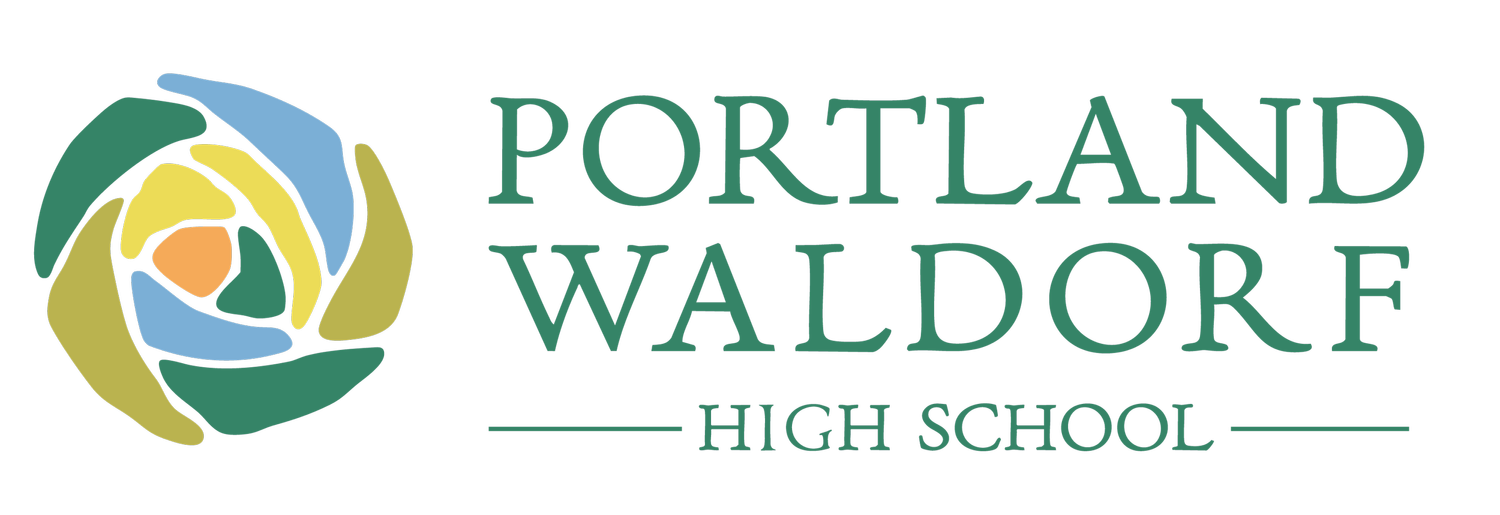
Our Approach
Human-centered and balanced, our inquiry-based curriculum and multidisciplinary philosophy weaves together the humanities and sciences, movement, outdoor education, cultural experiences, fine arts, music, theater, applied arts and service work to create a more harmonious, whole-being high school experience.
Students are guided through this process by a highly dedicated and qualified faculty, using limited technology intentionally. What emerges from our less-traditional style emphasizes depth and breadth of subject understanding, ignites innovative thinking, bolsters an ability to do just about everything, inspires a desire to be of service to others, and builds a confidence that lasts a lifetime.
An Inquiry-Based Curriculum
“The Waldorf curriculum is a road map. It poses the questions our students don’t even know they’re asking yet.”
Developmentally intentional, our high school curriculum emphasizes depth and breadth of subject understanding at the age students are ready for the appropriate intellectual challenge.
Project-based and academically rigorous, all class curriculum, from science and math to social studies and language arts, is designed to draw questions out of students, inviting them to think for themselves. This is how critical and creative thinking skills are developed at a Waldorf high school and it demands that students constantly and consistently follow their own line of reasoning, observation, comparison, analysis and synthesis.
A Multidisciplinary Philosophy
“Vulnerability is a superpower. We become community by being vulnerable together, whether through asking questions in calculus or singing on stage. ”
Our highly inquiry-based, cross-discipline school environment asks students to meet vulnerability and doubt as often as they do confidence and certainty.
As they navigate concept creation, problem solving, and art making, all students are tasked with applying themselves to the subjects they are good at and the ones that come less naturally, including different visual, performance, practical, and applied arts.
Their understanding of their unique selves and others grows within this model. They learn to appreciate strengths and differences within a community of people at a much deeper level.
A Dedicated Faculty
“The teachers here are so on your side. Applying to college actually felt easier than I was expecting because I felt so comfortable asking for help and talking to admissions. You really learn how to talk with adults at Waldorf.”
Beyond the scope of their subject-matter expertise, teachers here are highly invested in the well-being of each of our students.
They meet weekly to discuss challenges and growth opportunities within the student body and provide an advisory role for all of the students, who meet in small groups throughout the year.
Every student has an adult mentor as well as two class sponsors, all of whom help them navigate through challenges and grow in their teamwork, leadership, and communication skills, including setting goals, managing assignments and solving issues when needed.
Intentional Use of Technology
Our entire school campus is a cell-phone free zone. Technology, like daily access to laptops and instructional presentations, is used as a tool to help students achieve their specific goals purposefully. As students’ unique talents and ideas take shape, intentional use allows for more experiential learning, imaginative thinking and human connection.
While cell phones are allowed on campus, they are stored away for the entire day, even during breaks, and used only for specific, approved reasons. Here, high school students stay engaged with their learning and connect with their teachers and each other, as they do the important work of becoming who they are and preparing for their futures.
We partnered with Cedarwood Waldorf School to highlight our technology philosophy in the September 2024 issue of Portland Monthly.




